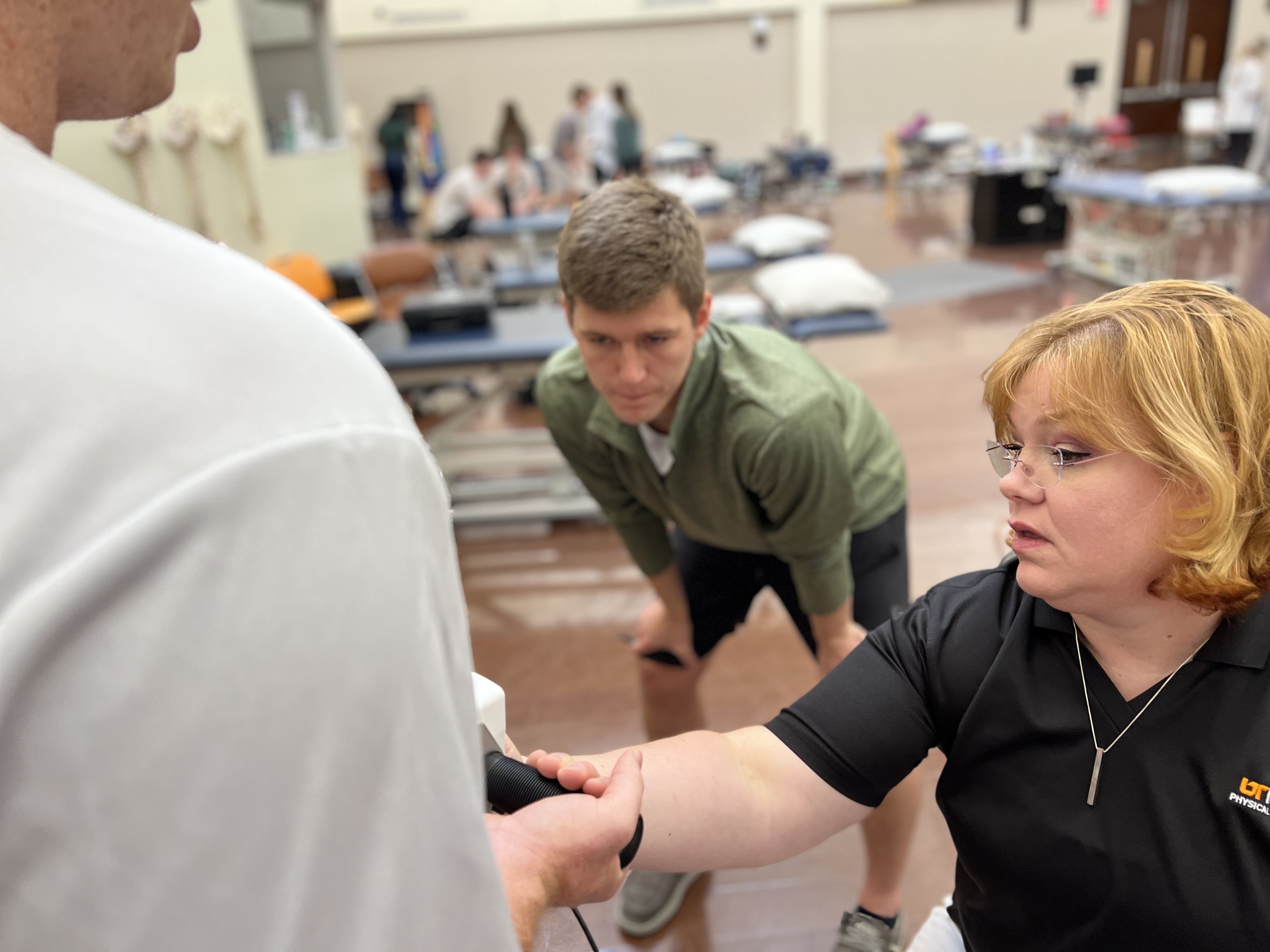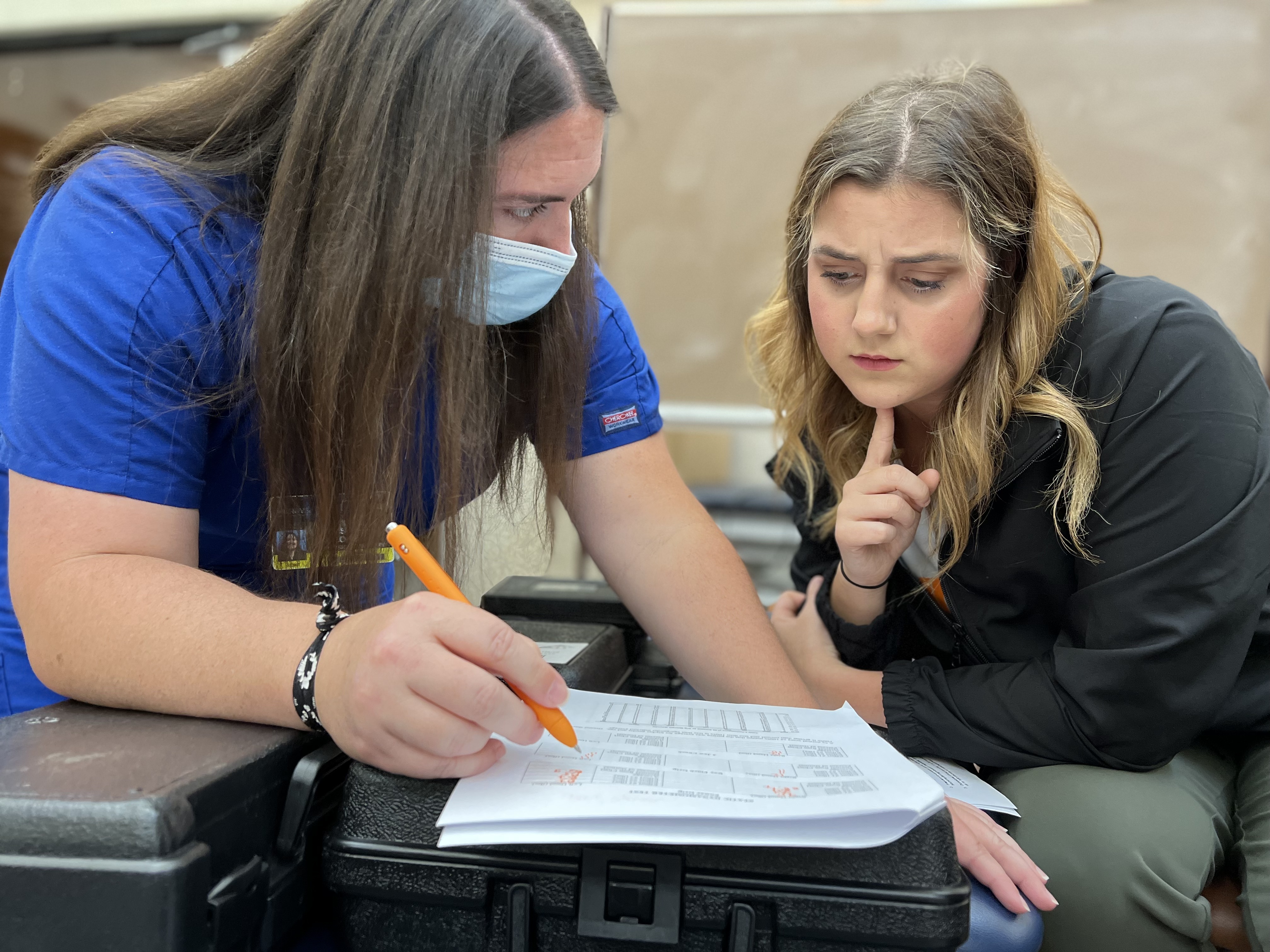Technical Standards


The goal of the University of Tennessee Health Science Center, College of Health Professions (COHP) is to prepare students for the practice of the professions of cytotechnology, health information management, medical technology, occupational therapy, and physical therapy. This includes undergraduate education and graduate education, where applicable. Modern health professions education requires that the accumulation of scientific knowledge be accompanied by the simultaneous acquisition of essential skills, functions and professional attitudes and behavior. The faculty of the College of Health Professions have a responsibility to graduate the best possible practitioners and graduate students; therefore, admission to educational programs in the College is offered only to those who present the highest qualifications for education and training in the art and science of the respective health professions.
Applicants to programs of the College must possess the following general qualities: critical thinking, sound judgment, emotional stability and maturity, empathy, physical and mental stamina, and the ability to learn and function in a wide variety of didactic and clinical settings. Graduates of the College must have the minimal skills, essential functions and knowledge to function in a broad variety of clinical settings, while rendering a wide spectrum of healthcare services.
The faculty of the COHP have a responsibility for the welfare of the patients treated or otherwise affected by students enrolled in the College as well as for the educational welfare of its students relative to the educational programs of the College. In order to fulfill this responsibility, the Committees on Admissions for the various professional programs of the College maintain that certain minimal technical standards must be present in applicants to the various educational programs of the College. Candidates for the bachelor of science degree, as well as those enrolled in any graduate education programs of the College, must have the following essentials: motor skills; sensory/observational skills; communication skills; intellectual-conceptual, integrative, and quantitative abilities; and behavioral/social skills and professionalism.
The Committees on Admissions, in accordance with Section 504 of the 1973 Vocational Rehabilitation Act and the Americans with Disabilities Act (PL101-336) have established the aforementioned essential functions of students in the educational programs offered by the COHP.
These Committees on Admissions will consider for admission applicants who demonstrate the ability to perform, or to learn to perform, the essential skills listed in this document. The College must ensure that patients are not placed in jeopardy by students with impaired intellectual, physical or emotional functions. Students will be judged not only on their scholastic accomplishments, but also on their physical and emotional capacities to meet the full requirements of the College´s curricula and to graduate as skilled and effective practitioners.
The essential abilities listed in this document can be accomplished through direct student response, the use of prosthetic or orthotic devices, or through personal assistance, e.g., readers, signers, note-takers. The responsibility for the purchase of prosthetic or orthotic devices serving a student in meeting the abilities noted remains with the student and/or agency supporting the student. The College will assist with this accomplishment, as required by law and institutional policy.
Upon admission, a student who discloses a properly certified disability will receive reasonable accommodation but must be able to perform the essential functions of the curriculum and meet the standards described herein for the program in which the student is enrolled. Possible accommodations include opportunities for individual and group counseling, peer counseling, linkages with community services, faculty advisory committees whose members are aware of disabled students and their needs, career counseling, assistance with job searches and interview skills, and extended test taking time, if and when appropriate. Students seeking accommodations should initiate their request in the Office of the Dean, COHP at 930 Madison Ave., 6th Floor or the Office of Students with Disabilities, Student Academic Support Services at 8 S. Dunlap, Room BB9, General Education Building.
Additional Technical Standards For Physical Therapy Students
In addition to the general standards described above, each professional program requires additional specific standards. Students in the DPT program are required to sign a form indicating that they are able to meet these standards with or without accommodation. Students seeking accommodation are directed to contact Student Academic Support Services and Inclusion (SASSI – with link!). Students unable to meet these standards may not be admitted to the program.
The student must be able to:
- Demonstrate sufficient strength, mobility, and stamina to attend and participate in all classroom and lab activities.
- Safely move another person’s body during transfers, gait training, positioning and manual therapy techniques
- Safely and effectively evaluate, guide, facilitate, inhibit, and resist movement and motor patterns
- Palpate changes in an individual’s muscle tone, soft tissues, skin quality, joint play, kinesthesia and temperature, and sense the individuals response to environmental changes and treatment.
- Safely move and use clinical equipment
- Demonstrate sufficient strength and stamina to participate in all clinical education experiences including travel time to and from the clinical site and maintaining a work schedule of 40 or more hours per week or however the daily clinical experience schedule is defined by a particular site
- Perform CPR
- Ensure the safety of the patient at all times.
The student must be able to:
- Use vision, hearing, and tactile sensation to perceive all information necessary for satisfactory academic performance and effective patient/client management.
The student must be able to:
- Communicate appropriately and clearly in English in oral and written form
- Utilize verbal, nonverbal and written communication effectively and efficiently in the academic and clinical environment
- Elicit all pertinent information from patients, patient records, and other members of the healthcare team
- Recognize and respond to non-verbal communications such as sadness, worry, agitation, pain, lack of understanding
- Demonstrate a willingness and ability to give and receive feedback
- Communicate complex medical findings in appropriate terms to patients, families, and other members of the healthcare team
- Establish rapport with patients, clients and colleagues
- Complete written assignments and search and evaluate the literature.
The student must be able to:
- Gather information during patient examinations to make clinical decisions
- Analyze physical, biomechanical, pathological, behavioral and environmental factors in a timely manner
- Effectively and efficiently synthesize data to formulate and execute a plan of care
- Demonstrate critical thinking and sound judgment in all aspects of patient care
- Comprehend three dimensional relationships and understand spatial relationships of anatomic structures.
The student must be able to:
- Demonstrate attributes of initiative, empathy, integrity and concern for others throughout the academic and clinical portions of the curriculum
- Recognize and respond appropriately to individuals regardless of race, creed, color, national origin, disability, age, gender, sexual orientation, marital status, socioeconomic or cultural background
- Demonstrate maturity and flexibility in the face of unpredictable and stressful situations
- Exhibit effective time management skills, delegate responsibilities appropriately and function as part of a team
- Recognize and respond appropriately to potentially hazardous situations.
